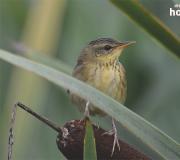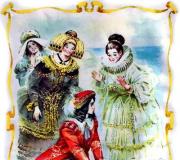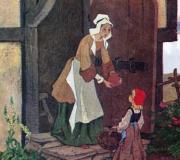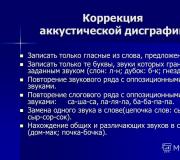Evdokia church holiday. The abandoned son of the famous actress Evdokia Germanova knocks on his mother's door
Avdotya Plyushchikha (Svistunya), St. Evdokia’s Day March 14, 2018: what kind of holiday is it, how is it celebrated, traditions, customs, signs, beliefs, history. Every year on March 14th the spring folk festival is celebrated. Avdotya Plyushchikha. Popularly it has many other names - Avdotya (Evdokia) Whistler, Avdotya Vesnovka, Avdotya the Kaplushnitsa, First Meeting of Spring, Proletye, Vesennitsa, Dunka-Svistukha.
In the church calendar, March 14 is the day of honoring the memory of the Venerable Martyr Evdokia Iliopolskaya, Abbess.

There has always been a popular belief that it is from this day that the singing of stoneflies begins. That is why the holiday was called Vesnovka. The name Plyushchikha came from the fact that during this period the ice begins to squash heavily.

The nickname Whistler appeared due to the fact that there comes a period when spring winds begin to blow with a strong whistle. Birds also whistle to welcome the coming spring.
History says that Evdokia was from Samaria. In the 1st-2nd centuries she lived in the city of Iliopolis in Palestine. One day she met the monk Herman. He had the habit of reading the Holy Scriptures aloud. At the time of his meeting with Evdokia, he was reading a passage about the Last Judgment. What the woman heard made an indelible impression on her. Very soon she decided to go to a monastery. As a reward, Evdokia received the gift of raising the dead.
Having received baptism, Evdokia prayed tirelessly, fasted and sincerely repented of her past sins. Soon she was appointed abbess of the monastery. Evdokia helped the poor, orphans, and wanderers a lot.
Fifty-six years later, the abbess was slandered by the pagans. Without trial, she was charged with witchcraft and deception. As a result, Saint Eudokia was executed by beheading.

Avdotya Plyushchikha (Svistunya), St. Evdokia’s Day March 14, 2018: traditions, customs, signs, beliefs. According to tradition, our ancestors climbed the hills on Avdotya Svistunya and sang spring flowers and called for spring. However, this occupation was very honorable, therefore not everyone was awarded it, but only young girls and children, sometimes women.

With this holiday the season of field work began. Men were usually busy looking for assistants for upcoming work. This had to be taken care of in advance, otherwise you could be left without help. A good owner always approached the search for additional workers very responsibly.
On Avdotya Plyushchikha (Svistunya) our ancestors watched the weather. From these observations, folk signs were born. Many of these signs have not lost their relevance today.

The warm wind on this day promises a rainy summer.
Good weather for Avdotya Vesnovka on March 14, 2018 promises the same summer.
If there is frost on this holiday, buckwheat will not produce well.
If the day turns out to be rainy, you can expect a rich harvest of bread.
If the crows cawing louder than usual on Avdotya, it will soon become warmer.
If the groundhog whistles, it means fine days.
If chickens drink melt water that day, then the frosts have not yet subsided.
It is believed that melt water from pure snow, obtained at Avdotya Svistunya on March 14, 2018, has healing properties.

March 11 – Sevastyan. Porfiry the Late.
According to folk superstitions, thawing and deepening of paths means a protracted spring. A rich harvest of grain promises the arrival of birds from warmer regions on this day.March 12 – Prokop Perezimnik. Dear Destroyer.
“The dug-out sled track is ruining,” “the snow lay there, lay there, and ran into the river,” people said.The buds begin to swell and the ice on large rivers breaks up.
March 13th is Vasiliev's Day. Solnechnik. Dropper. Vasily is warm.
This day is known among the Russian people under the name of Kapitel, or Kapelnik, as spring warmth begins, the effect of which is first of all revealed by dripping from roofs and generally from high places where snow begins to melt.“On Vasily Warm, the sun is in circles - for the harvest,” say folk signs. Rain on this day foreshadows a wet summer.
March 14 – Evdokia. Evdokia Vesnovka. Evdokia Mokrokhvostka. Evdokia Plyushchikha.
Celebrating the beginning of spring. In ancient times, the onset of spring was celebrated solemnly and cheerfully, which is why St. Evdokia received the nickname Vesnovka: “Evdokia Vesnovka equips spring.” According to folk tradition, St. Evdokia, or Avdotya, rules the spring, keeps the keys to the spring waters.Another popular name for this day is Call of Spring. On the cheerful holiday of Evdokia, spring is called at folk festivals.
On Evdokia, it was customary to wash the children with melt water so that they would be strong and healthy all year round.
The weather for that day was used to judge the weather for the whole year. “Like Evdokia, so is summer.”
If the day is clear, then there will be a harvest of milk mushrooms in the forest and in the garden. Snow on this day means a good harvest.
Beginning of preparations for field work.
March 17 – Gerasim Grachevnik.
On the day of remembrance of this saint, rooks fly to the north from warm countries. In honor of this event, they baked rooks from dough and said that Gerasim caught up with the rooks.“The rook will pick up a twig from the ground - he promises a sunny summer,” say folk signs.
March 18 – Konon Ogorodnik. Gradar.
“Konon the Gardener called me to the garden.” The ancient church monthly books say: “Even if it were winter on the day of Konon Gradar, start plowing the garden, and just plow on this day, the garden will certainly be good andEvdokia Vesnovka is a folk holiday in Rus', so called because on this day the ancient Christian saint Evdokia was revered. They called it freckle because the snow melted profusely and thawed patches appeared.
According to legends, she guards female beauty and helps to get married; many signs were also attributed to the day, by which the weather for the summer was determined.
On this day, they put the name of the person they would like to marry under the pillow and before going to bed they said, “Help Evdokia, bewitch your betrothed...”
On this day, according to tradition, birds that were not suitable for breeding were slaughtered and prepared for storage. Smoked, salted or preserved for spring.
On this day we noticed what kind of wind was blowing. If it is warm and humid, then the summer will be wet from rain.
On this day they collected melt water, believing that if you wash your face with such water in the morning before sunrise, any rash on your face will go away and your face will become smooth and beautiful
Evdokia Vesnovka is a holiday of the national calendar, which is not included in the register of memorable and holiday dates of the Russian Federation.
All holidays on March 14
Share with your friends on social networks! -
On March 14, 2019, the national holiday Avdotya Vesnovka is celebrated. The Church today remembers the Venerable Martyr Evdokia Iliopolskaya, Abbess.
Folk and church roots are intertwined in this holiday.
Who is Evdokia Svistunya, Avdotya Plyushchikha
Saint Eudokia of Iliopolis, whose memory is celebrated on March 14, is a Christian martyr. Most signs on this holiday are associated with the onset of spring.
It was a fun and great celebration in honor of the onset of spring, and the saint was nicknamed Vesnovka.
Evdokia was called the whistler because the winds were very strong, they really whistled. Although there is a version that this is due to the awakening of animals that roared and whistled, heralding the approach of spring.
But they call it Ivy because it flattens snow and ice, that is, it tears it into shreds.
According to legend, Evdokia, originally from Samaria, led a dissolute lifestyle for many years. One day on her way she met a monk who was reading holy scripture aloud. These words greatly influenced Evdokia, so she soon received baptism and entered a monastery. She soon gained the ability to resurrect the dead.
Evdokia began to help wanderers, beggars, and orphans. But 56 years later she was slandered by the pagans, she was accused of witchcraft and deception, which is why she was executed by beheading.
What you can and cannot do on March 14
You can safely go shopping, because they will be successful and will last you a long time.
To protect yourself from gossip and slander, it is believed that on this day you need to read appropriate prayers that will protect you from evil tongues.
On this day you should not make plans for the future, because they will not come true.
Signs for this holiday March 14
If it’s sunny and warm in Evdokia, it means the weather will be good all spring
It's nicer in Evdokia - it will be nicer all summer
Cloudy weather portends a cold and hungry year, and sunny, clear weather portends a fruitful year.
Cold Avdotya is a sign that spring will come late and be cold. The snow will most likely not melt for a long time
Ringing drops - wait for the hot summer
Girls who wanted to get married need to go out to a clearing where there is wind and ask him for a good life partner.




